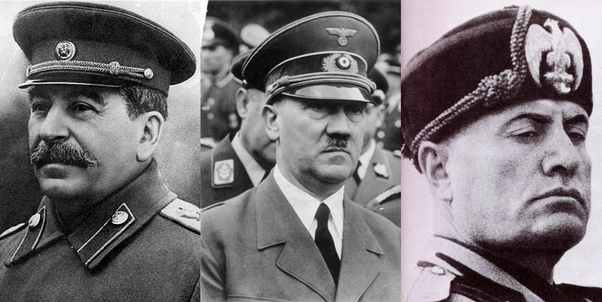

Total Classes: 14
Prerequisite: None
Suggested Grade Level: High School (Adjustments can be made to assignments in order to accommodate Middle School students.)
Suggested Credit: One full semester European History or World History or Modern History
Instructor: Christopher Martin, PhD
Course Description: Beginning in the early 1900s, the nations of Europe engaged in a furious struggle for hegemonic dominance of the continent. Germany and Russia emerged from the conflict of World War I as dramatically weakened and humiliated nations. This course treats each nation in roughly three parts: First, we trace the journey to totalitarianism, including the economic desperation which empowered radicals like Hitler, and the autocratic methods which Joseph Stalin used to gain power. Second, we examine the political, social and ideological nature of the regimes, identifying the hallmarks of totalitarianism, such as the cost in human lives. Third and finally, we examine what led to the demise of these regimes, and whether a similar regime could appear again in Western Civilization.
Course Outline:
Introduction: Weeks 1-2
- Week 1: Introduction and overview of syllabus and assignments
- Week 2: Defining Totalitarianism- Its social, political and ideological hallmarks, and trans-imperialistic background
The Communist Revolution: Weeks 3-9
- Week 3: The Historical Tsars
- Week 4: The Great War, and Lenin's ascent
- Week 5: Communist Consolidation: Building the Soviet Union
- Week 6: The "New Economic Policy," and the emergence of Josef Stalin
- Week 7: Stalin's ruthless centralization of power
- Week 8: Collectivization: the plight of the Kulaks
- Week 9: Reaction in the West, and the Unhinging of Josef Stalin
Fascism: Weeks 10-13
- Week 10: Fascism in Italy: Futurism, and Benito Mussolini
- Week 11: The seeds of radicalism: Hitler, and Germany after WWI
- Week 12: The conquest and pacification of Hitler's Bloodlands
- Week 13: The Shoah, SS, and autocratic failure.
- Week 14: Conclusion: The memory of the 20th-century totalitarians
Course Materials: None required.
Homework: Writing is an integral part of demonstrating both the assimilation of knowledge and the articulation thereof. Therefore, students will be guided through the process of writing a short (3-5 page, double-spaced) review of a book of their choice relevant to the subject matter.
NOTE: Middle School students taking this course may instead write a 1-2 page book report
Also, students will have access to periodic, ungraded review quizzes based on classroom lectures and discussions.
- Teacher: Christopher Martin